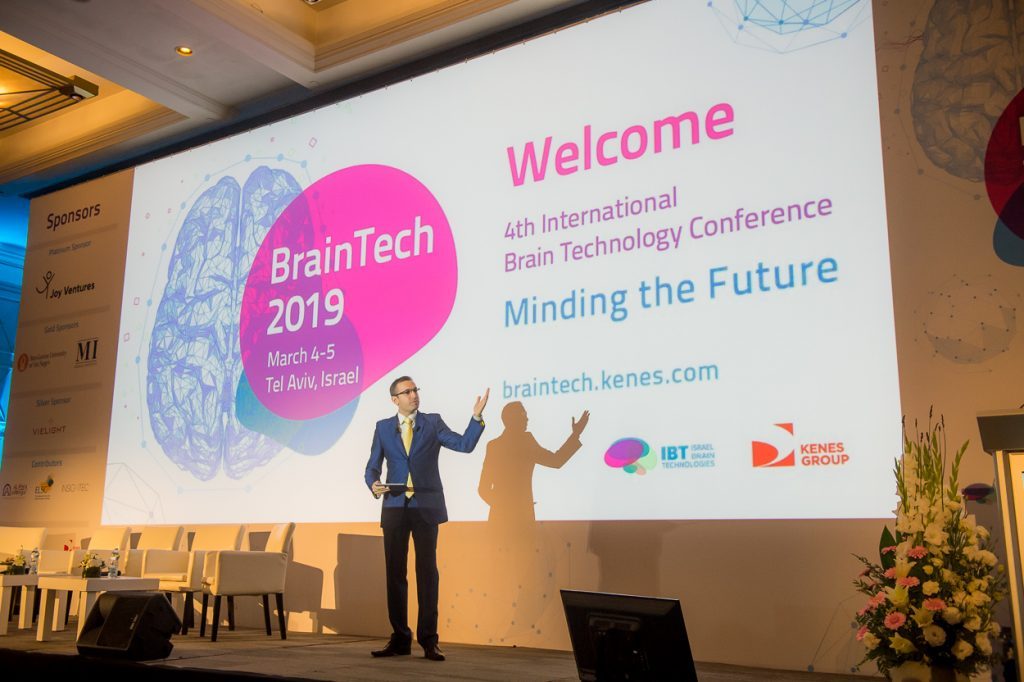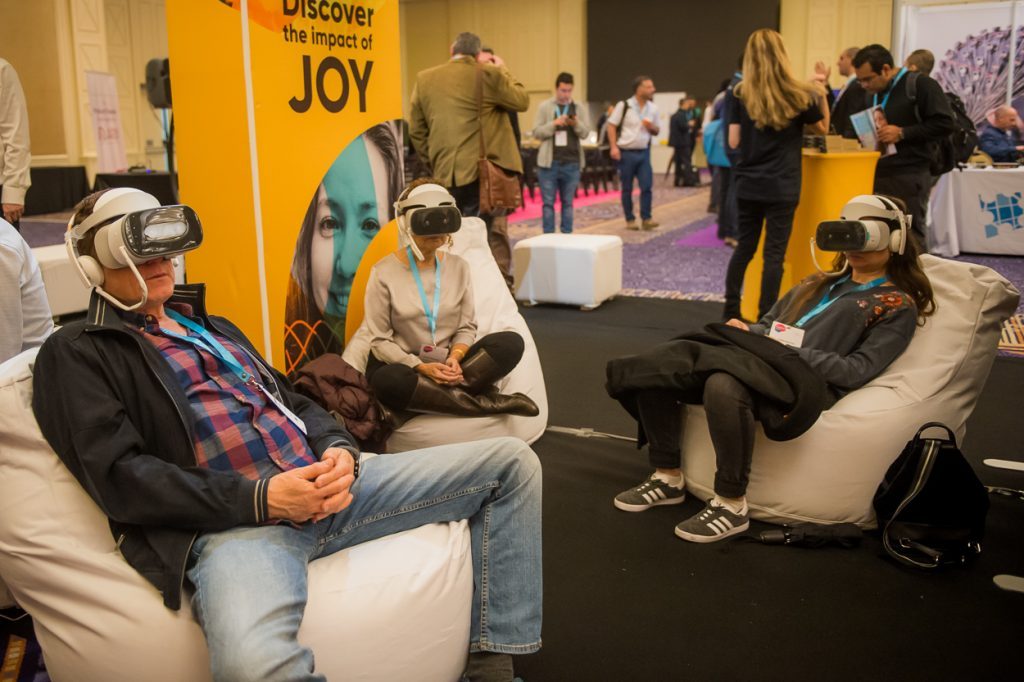Managing stress is often a daily effort for most people. In recent years, mindfulness – the psychological process of focusing the mind’s attention on present moments – has become wildly popular, and its most common form, mindful meditation, has grown into a billion-dollar business. Meditation, which has been around for centuries, has been touted as a method for helping to treat any number of ailments, from stress and anxiety, to sleep disorders, and even addiction, according to some studies.
Feeling mentally and emotionally well has not only become a matter of concern for followers of the mindfulness movement but for scientists as well, as more resources have been poured into scientific studies to determine effects on the brain and overall well-being.
Brain researchers across the world are increasingly beginning to study the link between our body’s control center and emotional health. In recent years, neurological wellness (or neuro-wellness), an emerging field focused on emotional wellbeing, mood enhancements and innovation and technology, has also garnered attention.
SEE ALSO: Mind-Blowing: 8 Israeli Tech Companies Tackling Brain Health
“Because we’re living longer, our focus is starting to shift toward well-being,” Bill Gates wrote last month as part of a piece reflecting on technological breakthroughs for the MIT Technology Review. “I think the brilliant minds of the future will focus on more metaphysical questions: How do we make people happier? How do we create meaningful connections? How do we help everyone live a fulfilling life?”
Earlier this month, this question was one of the main focuses at the Fourth International BrainTech Conference in Tel Aviv, a two-day global meeting point for leading scientists, clinicians and entrepreneurs who engage in brain research and technology.
While the power of a positive mindset has been praised as key, there is emerging scientific backing for the thesis that mood is directly linked to the mental processes in our brain. Moshe Bar, director of the Leslie and Susan Gonda Multidisciplinary Brain Research Center at Bar-Ilan University, presented a study that found that optimistic people show better cognitive work on associations, creativity, memory and a broader scope of attention than those with a more depressed outlook. People with a positive mindset, he indicated, are better able to foresee what’s coming next and to minimize perceived uncertainty. Thus, improving the mood of individuals can prompt our brain to activate processes that will make us feel well.
The brain’s powerful capacities are well documented, but can the mind heal the body? Neuroscientists Dr. Talma Hendler, of Tel Aviv University, and Dr. Asya Rolls, of the Technion, are currently collaborating on a study on brain-body interaction. Their initial findings have shown that activating a neural mechanism in our brain’s reward system may boost the immune system.
Can technology support us emotionally?
More and more entrepreneurs recognize the potential of such evidence for transforming our mind and body. Products for emotional wellness are currently flooding the market. But can technology really support us emotionally?
“Yes,” says Nichol Bradford, executive director and co-founder of The Transformative Technology Lab (USA), who believes that we are standing at the threshold of a new era of human flourishing. “I think there is a great deal of range and possibility in using technology to teach us how to relate to the way we feel. Emotions and self-regulation are trainable and teachable skills,” she told the audience.
According to Bradford, transformative technologies for well-being will not only address mental health and happiness, they are also entering the future of workplaces, improving emotional intelligence and social skills. Ultimately, they will lead to enhanced mental and emotional capacity.
Bradford calls this the “future of human possibilities” in which technology helps people develop their full potential. “The point is … to establish a new level of mental and emotional health.“
Sign up for our free weekly newsletter
SubscribeAn example of this is TRIPP, a Los Angeles-based software company that developed a mood-on-demand platform powered by virtual reality. Like a combination of video games and meditation, “taking a ten-minute TRIPP” can puts users in a state of mindfulness by creating a deep immersive, brain-stimulating experience. CEO and co-founder Nanea Reeves believes that mental health is the market for VR. After launching their product for corporate wellness programs, the company’s goal is to enter the therapeutic market, where TRIPP could be used for treatments like addiction recovery, she tells NoCamels.
An Israeli product that has already been deployed in hundreds of clinics worldwide is Myndlift, a device for personalized neuro-therapies. When looking for ways to improve ADHD symptoms without medication, Myndlift CEO Aziz Kadan discovered the potential of neurofeedback. Combining a sensory headset with a training program, Myndlift responds to changing brainwave patterns and is able to change and balance brain activation. The devices were featured at the conference.
Meanwhile, NYX Technologies, a young Israeli neurotech startup, is developing a platform for sleep management and stress reduction. A headset reads a user’s brain patterns and adapts its function individually for falling asleep faster, getting into deeper sleep and waking up refreshed. Currently, the Haifa-based company is conducting beta tests.
The future of wellness products
At a panel about the future of emotional well-being products, industry experts discussed how technologies are going to reach the individual consumer to enhance our lives.
“We can learn a lot from the mindfulness movement. People are becoming much more aware of their stress and the ability to change, and I think that is why a lot of apps and products are gaining so much popularity“, said Dr. Nava Levit-Binnun, Director of the Sagol Center for Brain and Mind at the Interdisciplinary Center (IDC) Herzliya. “But while people understand they can change their stress, they don’t actually manage to do it.“
The neuroscientist claims that people rarely go beyond monitoring because they feel comfortably numb. “The entrepreneurs who understand this deep psychological issue and are able to find a way to get around it, will be successful in the future,” she said.
Joy Ventures is a privately funded investment organization that appears to be on this track. As a platinum sponsor of BrainTech 2019, the organization curated several sessions with scientific researchers and entrepreneurs they support. “Our mission is to create a happier world filled with joyful moments, enabled by neuro-wellness products“, said Miri Polachek, CEO of Joy Ventures and IBT Founding Executive Director.
Part of Joy Ventures’ approach is building a community of “JoyMakers,” a program that promotes innovative consumer products in emotional wellbeing. “We help our participants find ideas and support them in getting their technology off the ground and into the market,” Polachek said.
On the second day of the conference, 60 participants were invited to connect with the organization. Roy Leiba and Yuval Shahar, two Israeli students, were among them. Six months ago, they started working on “Breasy,” a device they say will help people focus on better breathing for relaxation. Then, a mentor from the brain tech industry introduced them to Joy Ventures. “Being here today helps us to better understand the future of the industry, get to know the market, learn about other available products and discover the need,” Shahar told NoCamels.
Leiba added that the conference offers a unique way to meet different experts from the field. “For us, BrainTech has been an amazing learning opportunity.”
The BrainTech conference was last held in 2017 when it hosted over 750 attendees from the brain-tech ecosystem.
Related posts

Israeli Medical Technologies That Could Change The World

Harnessing Our Own Bodies For Side Effect-Free Weight Loss

Missing Protein Could Unlock Treatment For Aggressive Lung Cancer






Facebook comments